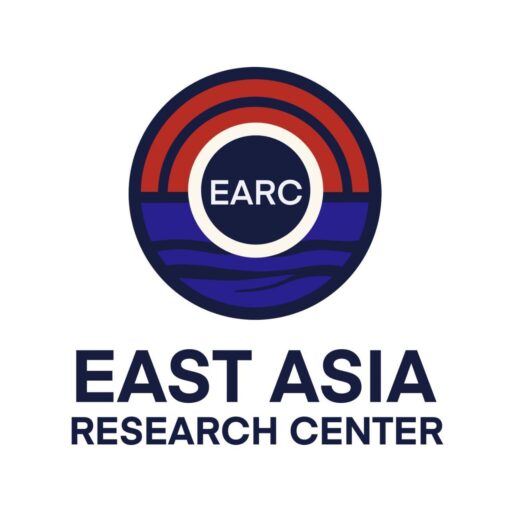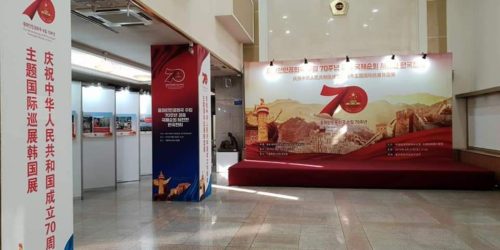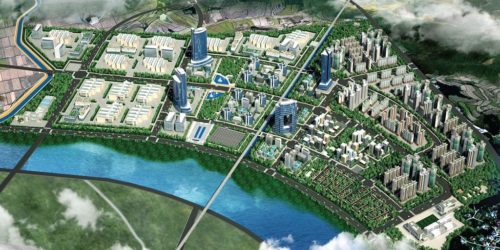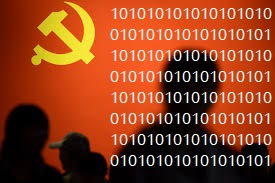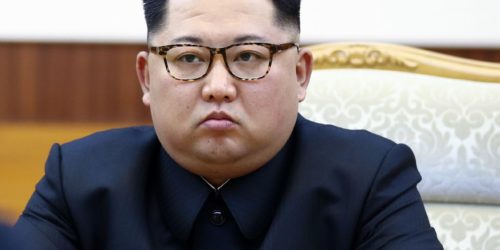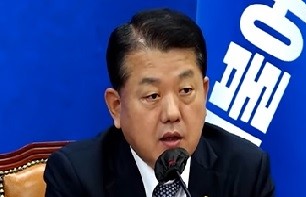China’s United Front Work Department Pushes for Building China’s Virus Lab in South Korea, Belt and Road Projects and A2/AD Too
2020-9-23, Tara O
China recently proposed to build a large Northeast Asian e-commerce logistics hub in Busan. As part of the project, China is pressing hard to build a virus lab similar to the one in Wuhan. Wuhan, China, is where the Coronavirus that led to a global pandemic originated. The ruling party politicians in South Korea are showing positive responses, while the shocked public is criticizing both China’s proposal and the ruling party’s responses.
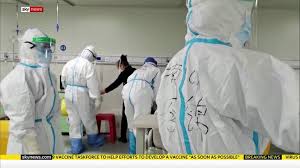
According to Busan Daily, China’s Overseas Association of China (中華海外聯誼會) sent an official letter to the chairman of the China-Korea Friendship Business Association Kim Deok-joon (김덕준), proposing a large-scale air and sea logistics hub centered on Busan (2nd largest city and the largest port city in South Korea). The letter also included establishing China’s virus research institute in South Korea, stating “China has a lot of know-how in the treatment of Coronavirus, and the level of oriental medicine care is very high. If we add South Korea’s and Japan’s western medicine and biotechnology, we can achieve maximum effect.”
The Overseas Association of China was in a hurry, asking that a Memorandum of Understanding (MOU) be signed by the end of the year.
China’s Overseas Association of China is a subsidiary of the Chinese Communist Party’s (CCP) United Front Work Department. The charter of China’s Overseas Association of China shows that the purpose of the organization is to “unite domestic and foreign compatriots, who love the Chinese people, with patriotism, promote goodwill, unify the motherland, and promote China.”
The executive director of the China’s Overseas Association of China is Mr. Luo Yu-Jen (뤄유젠). Luo is the only grandson of General Feng Yuxiang, a contributor to People’s Republic of China’s founding, and leads China’s Overseas Association of China as a civilian representative, after the United Front Department head and the deputy. A Chinese Communist Party member, Luo is the son of a biological warfare expert Feng Lida, who served as the Deputy Director of the Naval General Hospital of CCP’s People’s Liberation Army.
At the “2020 Northern Forum” hosted by the Northern Businessmen’s Association in Seoul, Luo Yu-Jen suggested establishing in Busan, South Korea:
- Northeast Asia e-commerce logistics hub
- South Korea-China-Japan virus and vaccine research institute
- A strategic platform for high-tech manufacturing and tourist exchange
Luo said he wants to lead the Korea-China cooperation project with Tianjin, a metropolitan area with a population of 30 million near Beijing, and Busan, a global maritime city, and suggested forming a “Busan-Tianjin Joint Private Council” as soon as possible. He also proposed signing an MOU for the promotion of each project at the Korea-China-Japan summit to be held in Seoul later this year.
Responses from South Korea’s ruling party, local government, and pro-China group
China-Korea Friendship Business Association Chairman Kim Deok-joon’s side said, “If we provide 100,000 square meters (24.71 acres) of land between Gadeok Island and Busan Port, where the southeastern gateway airport will be built, under the so-called “e-commerce logistics hub,” then we view that the world class e-commerce firm Alibaba of China can use the logistics network for not only China and Northeast Asia, but also for the Americas through air and shipping.” The letter stated they [China] “could pay most of the ₩800 billion ($687 million) in project costs” and added “along with that came the suggestion of establishing a virus research institute, which the China side showed a strong will to establish.”
Busan City’s Acting Mayor Byun Seong-wan (변성완) stated, “If the Chinese side sends an official suggestion, we’ll fully consider it for validity and so on,” adding, “If it benefits Busan, then there is no reason to refuse and we’ll consider it enthusiastically.”
Democratic Party’s National Assemblyman Kim Du-kwan (김두관), who represents one district in the City of Yangsan, North Gyeongsang Province, which is near Busan, is trying to entice the virus/vaccine lab to his city (but a different district, which he does not represent). It is reported that Kim and the Chancellor of Pusan National University Cha Jeong-in (차정인), who was appointed by Moon Jae-in on May 12, 2020, met numerous times and already reached an agreement to utilize the unused land area of Pusan National University Hospital in Yangsan for the construction of the vaccine and virus research center. Kim Du-kwan is known to have presidential ambition. Yangsan is also where Moon Jae-in owns a mansion and where he plans to retire.
Initially, China’s Overseas Association of China suggested building the virus lab in downtown Busan. There is no suitable land, however, for a building adjacent to state-of-the-art medical facilities, such as university hospitals. Having heard of this situation, Kim Du-kwan proposed that a research center could be established in Yangsan, which borders Busan, and the China-Korea Friendship Council delivered the proposal to the Chinese side and received a positive response.
Alarmed Citizens and Opposition View
Wuhan, the epicenter of the Coronavirus that led to the global pandemic, is also the home of a biosafety level-4 virology lab, which is steeped in controversy over the origin of the SARS-CoV-2 virus.
The news of China’s proposal to build a virus research institute in South Korea is shocking to the public. South Korea was one of the first countries outside of China, where the Coronavirus spread quickly soon after it spread in Wuhan before the Chinese authorities eventually shut down Wuhan. South Koreans remember well Moon Jae-in’s refusal to ban travel from China despite the doctors’ organization Korean Medical Association and the public making numerous requests to do so.
Subsequently, 124,408 people entered the Incheon Airport in South Korea from China during the crucial period of January 28 to February 5, 2020. Despite 2,362 of 124,408 people showing symptoms, only 583 were selected for treatment, 113 were quarantined, and 102 were tested. This does not include those with Coronavirus, but were asymptomatic, who can still spread Coronavirus. That was just over a 1-week period. In this way, the Coronavirus was imported in large quantities from China to South Korea. The public is in no mood to replicate in South Korea the Chinese virus lab that is the center of the Coronavirus origin controversy.
Shin In-kyun, a defense analyst, highlights some points:
- Why does the CCP want to build a virus lab not in China, but in South Korea? He points out that China suggested this in August, one month after the WHO scientists visited China with the intent of visiting the Wuhan Institute of Virology, but they never even went near Wuhan or even Hubei Province.
- Shin also points out an interesting fact about the movie World War Z, starring Brad Pitt, and wonders changing the source of a new infectious virus from China to South Korea would mirror the movie, if the China’s virus lab is built in South Korea. (2:18) In the book, the highly infectious new virus emerges from China and spreads around the world, turning people into zombies. In the movie version, due to China’s pressure, however, the source of the virus was changed from China to Camp Humphreys, a U.S. military base in South Korea, and blames the U.S. military for spreading the virus around the world.
- China talks of having expertise in Coronavirus treatment. If it already has the vaccine, it has no reason to collaborate with foreign entities, since it already took all the risks of developing the vaccine, but would have to share the profits from the vaccine with others. If it already has the vaccine, why does it want to open a virus and vaccine lab in South Korea so desperately, and send virus samples and scientists to Korea?
- The virus research institute, which deals with various pathogens, is an extremely dangerous facility, especially to the local residents. The reason China wants to build such a state-of-the-art research facility in Korea, not in its own country, is because it has been keenly aware of the dangers of such research facilities after the Wuhan Virus crisis. The CCP wants to build such a dangerous facility in a near-by and easy-to-handle South Korea. In other words, it reveals how the CCP thinks of South Korea and is more like a provocative act.
- As other countries are decoupling from China, it is a dangerous idea for South Korea to do large-scale economic projects with China.
- Alibaba could be the subject of U.S. sanctions. To start business collaborations with Alibaba can be seen as a declaration to turn away from the United States. If Alibaba is sanctioned, South Korean entities collaborating with Alibaba could be subject to secondary sanctions.
- The fact that Kim Kyung-soo, the Governor of South Gyeongsang Province, is overlooking the potential secondary boycott is shocking.
[Note: Kim Kyung-soo was found guilty in the infamous Druking case–massive online manipulation of public opinion in favor of Moon Jae-in and against his opponents using sockpuppets, trolls, and sophisticated software prior to the 2017 presidential election. He was sentenced to jail, but was soon released on bail.]
Lee Eon-ju, former National Assemblywoman, criticised Moon Jae-in and the Democratic Party of Korea (Deobureo Minjoo) for trying to set up “a branch office of the Wuhan virus lab in Yangsan.” She further asked “what is the mission of the Wuhan Institute of Virology? Isn’t it suspected of preparing for biological warfare? Of all the countries, it’s China’s research lab. If that virus lab is established in Yangsan, what do you think its mission will be?”
She continued: “In a situation where the U.S.-China conflict is intensifying, if we have a Chinese virus lab in our front yard, then it is advertising that we will be the bridgehead of the Chinese-originated biological warfare.”
She demanded that Moon and his party clearly reveal to the public how far the discussions have progressed and what they plan to do regarding the establishment of China’s virus center in South Korea.
She added, ‘Are you holding the citizens hostage? Why do you do whatever you want with the Republic of Korea and its citizens?…For which country are you working for? You become weak-kneed in front of Chinese Communist Party…If you really love the Chinese Communist Party, just go to China and live there.”
- We must stop it.
- After Xi Jinping spread Wuhan Pneumonia and received criticism from the world, has he started an operation to turn our country into a virus transmitting country by using his servant Moon Jae-in?
- Is Du-kwan in his right mind?
- (Moon administration, the ruling party) are so obsessed with China. They only think about their benefit, not the citizens’ lives. Why is China not setting it up in its own backyard, but in someone else’s country? What is the intention?
- (Yangsan) will become like Wuhan…I’m scared.
- I oppose doing anything with China.
- Can’t trust the Chinese Communist Party.
China’s Belt and Road
While the virus lab is creating a stir in South Korea, the establishment of an air and sea hub in Busan for China’s use is also worrisome. China has built infrastructure projects around the globe as part of its Belt and Road project, notorious for trapping the recipient country into debt, while gaining access or ownership of the ports or infrastructure for China’s CCP. Already, nearly 30 Chinatowns are in South Korea, and some are part of China’s Belt and Road Project. See here for more details.
Anti-Access/Area Denial (A2/AD)
The CCP could use this logistics hub in Busan not only for commercial reasons to try to circumvent the decoupling measures, but also for strategic and military purposes. The Busan Port, located in the rear area of South Korea (southeast), has strategic importance. It is crucial for the reception, staging, onward movement, and integration (RSOI) process for personnel and equipment arriving in the Korean theater in case of contingency or military operation to defend South Korea. This could be part of China’s Anti-Access/Area Denial (A2/AD) plan to dominate this key port and to significantly degrade the capability of the U.S. and UN Sending States to offer assistance to South Korea, should the need arise.
